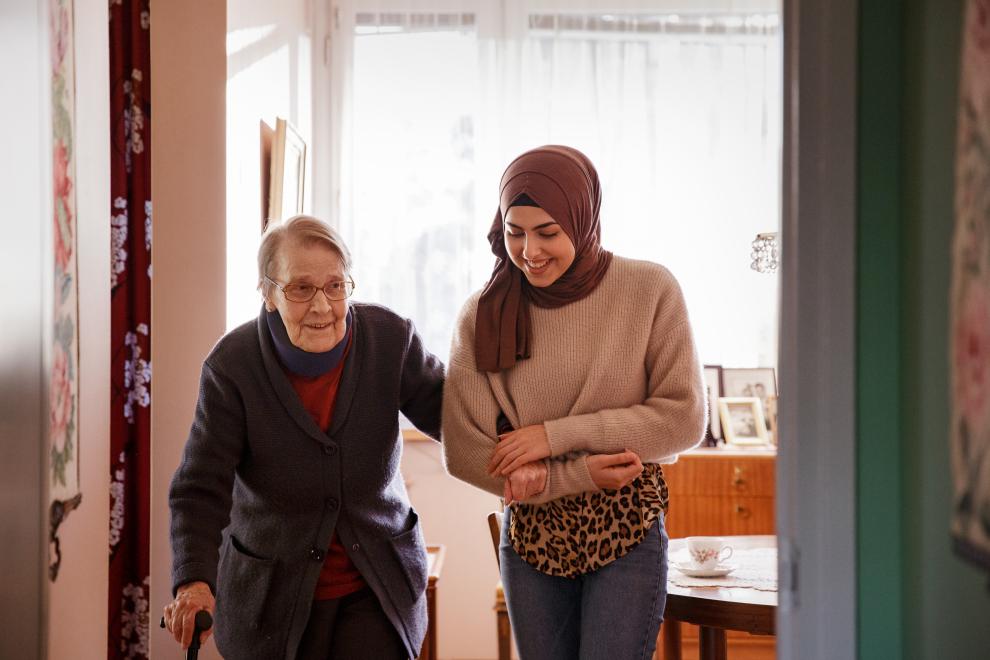Home care for elderly citizens

Estimated reading time 2 minutes
The assessment focused on examining whether home care is provided in accordance with the Act on care services for the elderly and the city’s objectives. The 2017–2021 City Strategy had the objective of enhancing home care and the well-being of its customers and employees. Documents concerning occupational well-being, Helsinki’s senior citizens programme (Stadin ikäohjelma) and the city’s budget have determined more detailed objectives and actions. These include increasing the number of nurses in home care, the share of remote home care, drafting mobility agreements for the customers as well as developing home care on the basis of the customers’ wishes.
Home care does not fully meet the requirements the Act on care services for the elderly has concerning equality, and in many ways, home care has not achieved the targets set by the city. Home care is not implemented in a linguistically equal manner, because there is a shortage of Swedish-speaking nurses. Regional equality is achieved within the meaning of the Act on care services for the elderly, even though there are regional differences between home care units in things such as practices, occupational well-being and availability of personnel. The shortage of personnel has become worse in the last few years. Personnel’s occupational well-being has improved, but only by a little and not in accordance with the objectives. The shortage of personnel and use of substitutes are stressful for the personnel. Instructing the substitutes takes up the working hours of permanent nurses and the contribution of agency-hired labour does not fully replace the contribution of permanently employed people as the duties of substitutes are limited.
In late 2021, Helsinki was not able to observe the processing time for service needs assessment pursuant to the Social Welfare Act. In addition, there was overlap in the assessment of service needs since it is first done in HelppiSeniori, then during the rehabilitative assessment period of a rehabilitation unit, and the assessment of service needs still continues in home care.
The Social Services and Health Care Division must
- ensure that the service needs assessment of people aged over 75 pursuant to the Social Welfare act is implemented within the set timeframe.
- take measures that are more effective than before in order to improve the availability of health-care personnel.
- increase the dialogue between the rehabilitative assessment unit and home care personnel when a customer is transferred from the rehabilitative assessment period to home care.
home care of the Social Services and Health Care Division must
- ensure that the linguistic equality pursuant to the Act on care services for the elderly is achieved.
- investigate whether the indirect duties included in the customer work of nurses in charge can be reduced.
- investigate whether the work duties of substitutes can be expanded so that they better reflect the duties of permanent personnel.
- identify the best practices for occupational well-being and quality of care and apply them as comprehensively as possible in different areas.

Add new comment